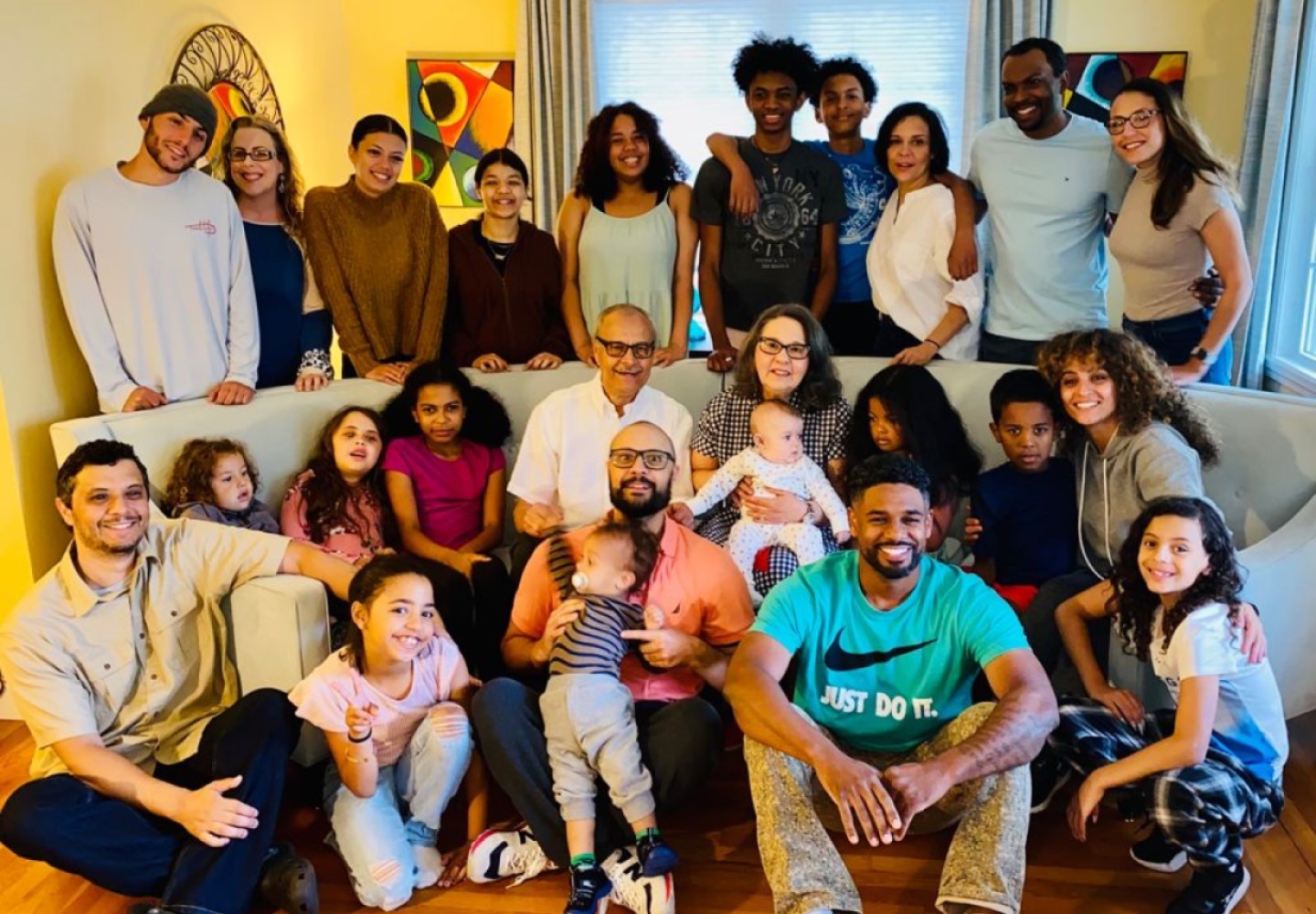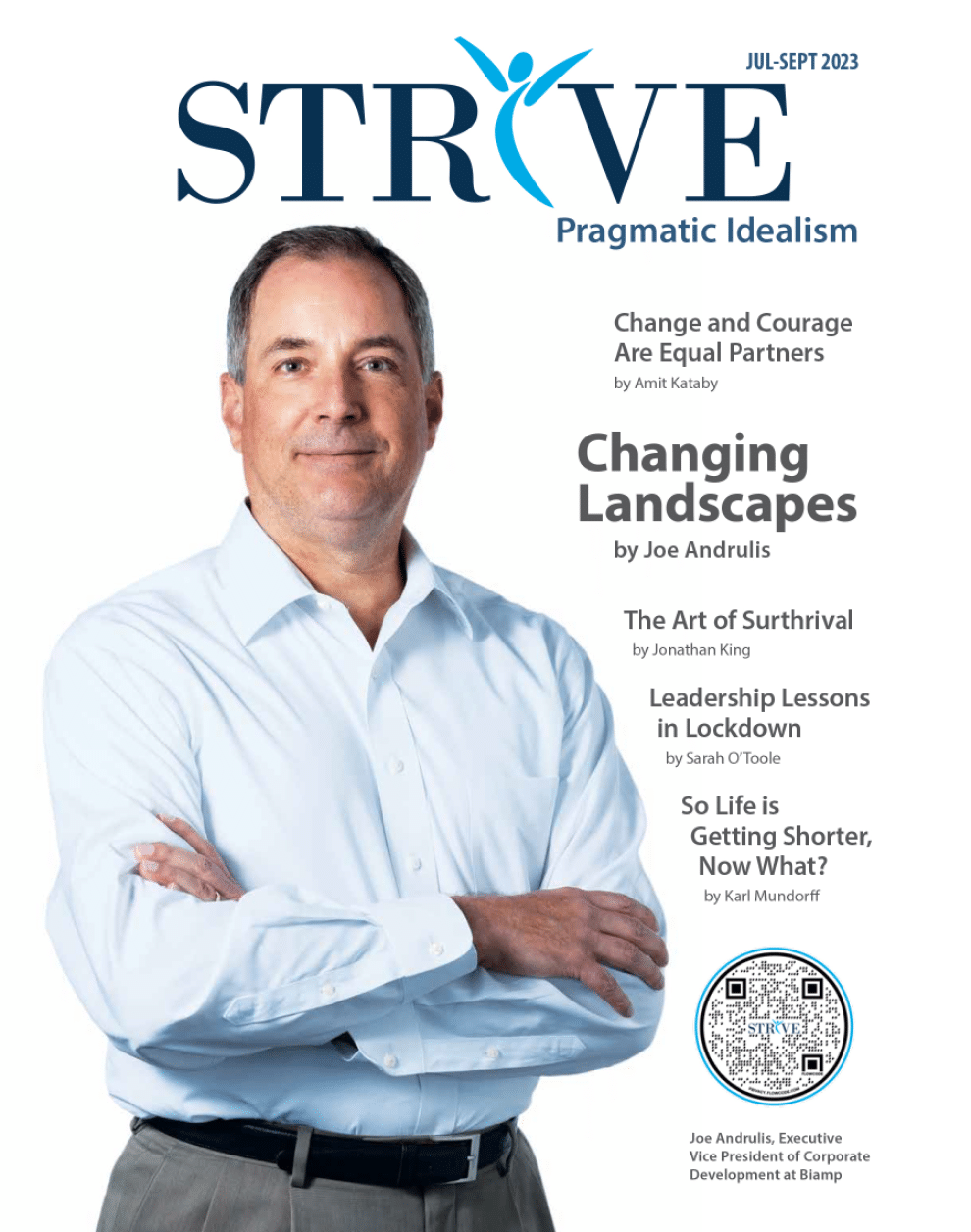 My family and I just came back from a weeklong visit with my in-laws in Massachusetts and it seems to me that every time we visit, we come across some sort of conflict. I always assumed conflict is to be expected with two grandparents, four siblings and their spouses, 13 grandkids and lots of baggage in one house. But where does conflict come from really?
My family and I just came back from a weeklong visit with my in-laws in Massachusetts and it seems to me that every time we visit, we come across some sort of conflict. I always assumed conflict is to be expected with two grandparents, four siblings and their spouses, 13 grandkids and lots of baggage in one house. But where does conflict come from really?
When my husband and I got married I was young, scared and confused. I left a home I didn’t like to create a new life, a new possibility. What I know now that I didn’t know back then was that whatever I was experiencing back home, I brought with me to this new place, to this new life I was creating. I was still living a life full of adversity, even in a different continent.
When I first met my husband’s side of the family, they were nothing but kind to me. They were genuinely curious and interested in my culture and the place I grew up. They showed gratitude for what they viewed a sacrifice; leaving the country where I was born and raised, leaving the people I love the most, and beginning a new life in the United States with their son. Our first few years of marriage were rocky, especially my integration with his family that was now mine. For many years I didn’t consider them my family. I made it very clear that my family consisted of my husband and our daughter and that his family were just background guests. I was determined to protect the family unit I had created and wanted no outside interference; after all I did leave what I felt was a broken family to create a new one and had no interest in the intrusion of someone else’s family drama and conflict. I was acting just like that little kid whose father is now in a new relationship and was screaming at the top of her lungs – – you are not my mother!
As years went by and as I began the search for inner peace, I was present to the threat I was experiencing with each visit. I realized that it was grounded in a basic and universal human emotion; the fear of being dominated and the need to be right. As if me joining the family meant that I needed to censor myself or not show my true self. I viewed it as a risk to my identity. In short – I felt dominated, once again. So, I fought it, kicking and screaming.
Some time back, before leaving for a trip, I casually asked my husband how was he feeling about our up-coming visit. Three years had passed along with a pandemic since last visiting. He shared how excited he was to see his siblings and to finally meet his great niece, a new addition to the family. While we were chatting, my very observant 9-year-old daughter interrupted our conversation and asked – “Ima (mom), how come it sounds like you don’t want to go and visit Abba’s (dad’s) family?” I went silent, feeling as though I had been caught red-handed. She must have recognized the lack of enthusiasm in my voice. But it wasn’t that I didn’t want to go, not at all. It was just old fears that she heard in my voice. But what was behind the fear?
Every time we visited, there was some sort of conflict within the family, which used to affect me on a personal level as if it were happening to me. Today I understand that it forced me to confront my own inner conflicts, and I was a bit nervous to see what this visit would bring.
So, this time, I reminded myself that I was different, well trained, like Heraclitus said — ‘No man ever steps in the same river twice, for it’s not the same river and he’s not the same man.’
I knew that I was not the same and that this visit would be a reflective practice for me; an indication as to how far I’d come in resolving my inner conflicts about my own family. As I was mentally preparing for this trip, thinking of ways to make this one different for me and my family, I heard Deepak Chopra in my head – “Every time you are tempted to react in the same old way, ask if you want to be a prisoner of the past or a pioneer of the future.” So, I chose pioneer.
True to past form, the circumstances didn’t disappoint. Within 24-hours of our arrival, one of my nieces entered the kitchen where we were all having dinner with tears in her eyes. It’s the same story every time, three families living under the same roof and finding it difficult to get along. My first instinct was to look for a villain to blame. Who is right and who is wrong? I watched myself judging and assaying the situation thinking things like – this shouldn’t happen, adults should know better than to bully and manipulate kids.
As I was hearing the chitter chatter in my head, I was present to a choice. I could either operate from that judgmental place and stay a prisoner of the past, or, I could just drop it and be a pioneer. Yes, just like that, drop all the noise and the judgments I have in my head regarding the situation and listen from nothing, an empty vessel, and through that, create a new space, an extraordinary one where I give space for something new to occur.
I took my niece for a walk and the conversation was different this time. No villain, no right or wrong, just an authentic and brave conversation about reflection and extreme ownership. We talked about our responsibility to make our lives work, and the acceptance that life and families are complex and will never happen the way we want them to happen. We discussed effective ways for dealing with all the circumstances that are out of our control.
Honestly, I am not sure what impact I had on the situation or my niece. What I do know is that for the first time, I wasn’t triggered by the circumstances, I didn’t make it about me. I avoided the tension I used to create between myself and my family. I kept my power and didn’t give in to circumstances or to what I felt about the situation. That alone, created peace for myself and for the people around me. An added bonus was winning over my automatic, conditioned mind and ego that want to be right. And I did it where it matters the most – with family.
Wherever there are people there’s conflict, and conflict doesn’t exist if it’s not inside of you first.
On this note, I would like to offer you three practices I find to be effective when dealing with conflict at work, with family or really with anyone you come across.
- Listen to your inner conversation about what is happening – Everything starts with awareness. First understand, that our outer world is a reflection of our inner world. Pay attention to what it is that you tell yourself. Notice your conditioned mind constantly judging the situation, trying to figure it out, to see who is right and who is wrong, notice that you are only judging the situation by your inner world, beliefs, thoughts, and feelings. Consider that if you feel like you need to defend or protect your point of view, or justify a behavior, you are identifying with it as if it was you and when we overidentify with outside things/situations, they become a threat on our identity, and we become closed off to other perspectives and dialogues. Conflict is never resolved from that space, so if your goal is to have peace, remember you are not all the things you believe/think and other people’s behavior, opinions etc. would no longer bother you or threaten you, that kind of thinking will allow you to create something extraordinary, something new.
- Give up your need to be right – After you become aware of your inner conversation, it’s important you don’t stop there. Awareness is only at the doorstep of transformation. You have to walk it, do something new and unpredictable to create the possibility for a different kind of conversation. Only when that takes precedence over your need to be right will you be able to transform every interaction encountered. Remember – giving up the need to be right is not a weakness, complacent, or even accepting of a situation. On the contrary, holding on to being right is nothing but a survival mechanism, and it never progresses the conversation. The choice of letting go and listening from an empty vessel, is strong, counterintuitive, and extraordinary, which doesn’t make it better or right, just effective. If you are resistant to this idea, I offer you to ask yourself why? This will show you how strong that need is. When you are free from the need to be right, others around you, will be too.
- Be authentic about what’s really going on. Authentic with yourself and with others – Every time you get annoyed, or find yourself in conflict with others, remember that conflict needs to live within you first to exist. Authentic conversations are usually mistaken for saying whatever is on our mind or holding on to what we think and feel as if it was the ultimate truth, when in fact, it’s only a justification that keeps us in our righteousness. So, what does it look like to be authentic? To speak authentically? When I look at my life and the constant conflicts I was experiencing every time I visited my husband’s family and after a deep brave inner look, I discovered that what was really going on was that I was holding on to the experiences I had with my father who would say one thing but act completely different. The moment I saw a similar behavior I used those experiences as justification as to why I couldn’t be part of the family. You see, behind every conflict, there’s pain, pain we either don’t see, or are not willing to admit, or both. When you are authentic with yourself and others about your pain, you open a space for others to do the same, and in that you create a new possibility for connection and inner peace.
Life is nothing but a perception of what we experience. And everything you experience in life is within you. Love, anger, conflict, joy, pleasure, pain – they all live within. The outside world is a reflection of your inner world. This realization alone should give you power and inner peace because it means that it’s independent of what’s happening around and outside of you, and it gives you complete power of your inner world.
It takes a brave person to look at what’s not working and understand that it’s just a choice. Your choice.













































